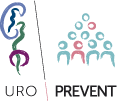- The most common Sexually-Transmitted Diseases (STDs)
- 8 Preventive Measures to avoid getting infected during sexual intercourse
If you are not in a monogamous relationship, make sure that you have in mind the following:
• Always use latex condoms during sexual intercourse. Great caution is always necessary for even condoms do not offer absolute protection.
• The more sexual partners you have, the higher the risk for exposure to STDs. And do not forget that a laboratory test result that is negative for some diseases (e.g. the virus for AIDS) may be found to be positive even months later.
• In case you suspect you have been exposed, ask the Expert Physician without any delay. Today many STDs can be treated and cured. However, early diagnosis and therapy are essential to avoid complications and permanent impairment. Unfortunately, most times signs and symptoms -particularly in women- are not visible until complications arise. That is why when one of the two partners gets afflicted, the other partner should immediately get informed and both of them should visit the Expert Physician.
STDs are defined as the diseases mainly transmitted through sexual intercourse. Also important is the type of sexual activity one has. Sexual activities have been classified according to the degree of transmission risk.
- High-risk sexual activities: Vaginal or/and anal sex WITHOUT condom
- Moderate-risk sexual activities: Vaginal or/and anal sex WITH condom, as well as oral sex without condom
- Low-risk sexual activities: caressing genitalia, wet kissing and oral sex with condom
- No-risk sexual activities: Massage, masturbation and sexual abstinence.
The most common STDs are:
- Hepatitis B and C
- Herpes Genitalis
- Human Pappiloma Virus (HPV) / Condyloma Acuminatum
- Gonorrhea - Seborrhea
- Chlamydia
- Mycoplasma
- Syphilis
- Bacterial Vaginosis
- Moniliasis - Fungi
- Trichomoniasis (Trichomonas Vaginalis)
- Phthiriasis Pubis - Pubic Lice/ Crab Lice
- Acquired Immuno-Deficiency Syndrome (AIDS)
Eight (8) Preventive Measures to avoid getting infected during sexual intercourse
1. Learn how to use condoms properly.
2. In case of using a lubricant, make sure its basic ingredient is water (water-based lubricant).
3. Αvoid exchanging towel or underwear.
4. Urinate right after sexual intercourse.
5. Wash your genital area well with water before and after sexual intercourse.
6. Ask your doctor about vaccination against Hepatitis B (three doses)
7. Avoid consuming excessive alcohol before sexual intercourse or having sex with partners who are under the influence of alcohol and/or addictive substances. Sexual contact with such partners is usually not safe.
8. In case you suspect you have been exposed to HIV, visit the Expert Physician in order to undergo the HIV test. And do not forget that a laboratory test which is negative for some diseases (e.g. for AIDS) may be found to be positive long afterwards. If you have even the least suspicion, do not delay at all in asking the Expert Physician.


